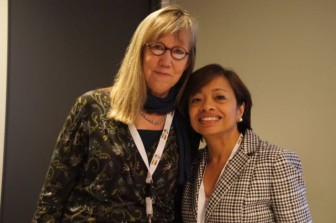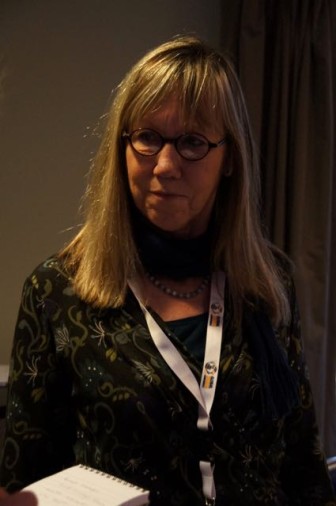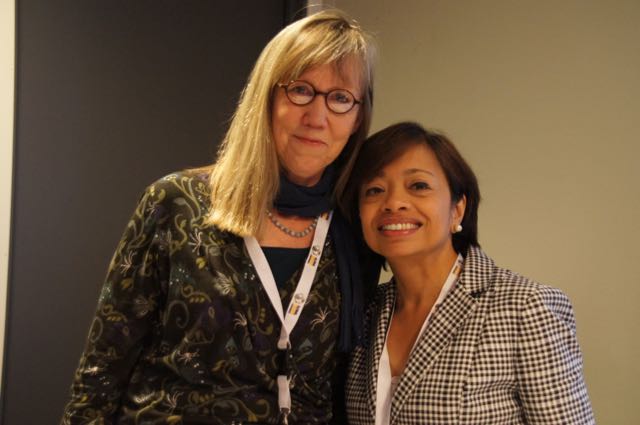
Deborah Nelson and Sheila S. Coronel
Are muckrackers born or made?
The question was asked by Sheila S. Coronel, academic dean at Colombia University’s Graduate School of Journalism, in the session Investigative Journalism with Students.
“We believe they are made, that is why we are teaching investigative journalism. We also believe they come in all sizes and shapes.”
 Coronel and Deborah Nelson, associate professor of investigative journalism at the University of Maryland, discussed how they teach their students to produce high quality stories and what they expect from them.
Coronel and Deborah Nelson, associate professor of investigative journalism at the University of Maryland, discussed how they teach their students to produce high quality stories and what they expect from them.
Coronel highlighted that the only way to learn investigative journalism is by doing.
Here are some tips on how to learn by doing:
- Work both individually and in groups on reporting projects.
- Find an investigative story within a specific rubric.
- Find people to talk to, which means often just knocking on people’s doors.
- Request and work on data.
- Tell a compelling story.
“Muscle-building exercises,” is what Coronel uses to teach her students how to do investigative research and it consists of two main aspects: writing and thinking.
In terms of writing, Coronel asks her students to summarize a thesis into a 25-word write-up, to craft a lede and nut ‘graph, and to write multiple drafts of a story within tight deadlines. In terms of thinking, Coronel asks her students to formulate research questions, investigate a hypothesis, and assess the quality of evidence and robustness of findings.
General tips
- Picking the story: It’s smart to pick a topic you are interested in and consider factors such as student level, time, importance, and budget.
- Skill training: Lectures should focus on one skill each class.
- Organization: Have the students use Google Drive for uploading notes and documents.
- Writing: It’s useful to write footnoted stories early and often. This way the students can see how their story changes as they dig deeper. The footnotes should have links to the sources, their phone numbers, and biographies.
Deborah Nelson thinks investigative journalism is crucial and that all journalism studies should focus more on this type of reporting and writing.
“When I interview them, I try so scare them. If they still want to study here, they know what investigative journalism is all about. They are very talented,” she said.

Nelson explained that they chose the cases to work on depending on the level of difficulty and importance. The students need inner strength and curiosity to work on the project, but also, constant guidance from professors.
Journalism teachers “should read investigative stories to their students, analyze them, and talk about them step by step,” she said. And they “should be available for the students so they can ask for help while working.”
Check out Deborah Nelson’s presentation here.
Olivia Knudsen and Agnete Bråtun are journalism students at the University College of Volda who are on special assignment covering #gijc15.

